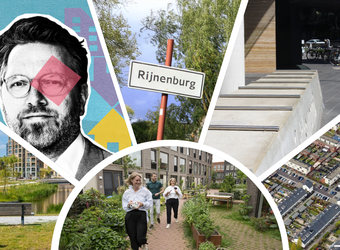Verslag “We need to appreciate that the world we are looking at is much more complicated and the relevant processes are much more varied than what seems to be implicit in the Top Sector type of policies approach” These were the words prof. Philip McCann used to open a debate about Knowledge Clusters in the Netherlands which involves important issues such as the provision of higher education, human capital consumption preferences, investments in knowledge related activities and their respective geographies which seem to be very different.
The provision of higher education and the role of universities
National productivity is increasingly related to the proportion of people in tertiary education by which the relationship between education and productivity growth is becoming stronger. This societal relevance of universities was presented by Philip McCann by using OECD data and highlighting tertiary education at the treasury level in order to emphasise the current major concerns and priorities. In brief, there is an increasing direct and derived demand for knowledge and knowledge inputs respectively. This is evidenced by an increasing number of graduates rates everywhere and rates of knowledge applications by universities and also by faculties that are now competing in a global market regarding to publication, citations, general outputs, etc. As a result, many patterns of changes related with differences in the characterisation and distribution of the labour market, the knowledge workforce and the employment culture have been evidenced with variations across and within the countries. Moreover, it is noticed the impact of universities and graduates on public participation and institutional engagement, telling us more about how societal preferences change with education, especially in developed economies.
The European context
R&D is more concentrated spatially than human capital or employment. European Geo-data have shown that overall in Europe, across and within the countries; there is a huge difference between the geography of the provision of the skills and the actual outcome of those skills. Based on data provided by the European Commission in the 5th Cohesion report 2010, it was shown how countries are converging very slowly in Europe. That productivity growth is noticed between countries and also between sectors, telling us more about the strong links between education, innovation, skills and productivity in which universities play an important role. However, it was also illustrated that the education provision, where the students come from, where they go to work and where money is invested in education and knowledge related activities, have a very different geography.
Zie voor de volledige publicatie:
Cover: ‘nederland aerial’





